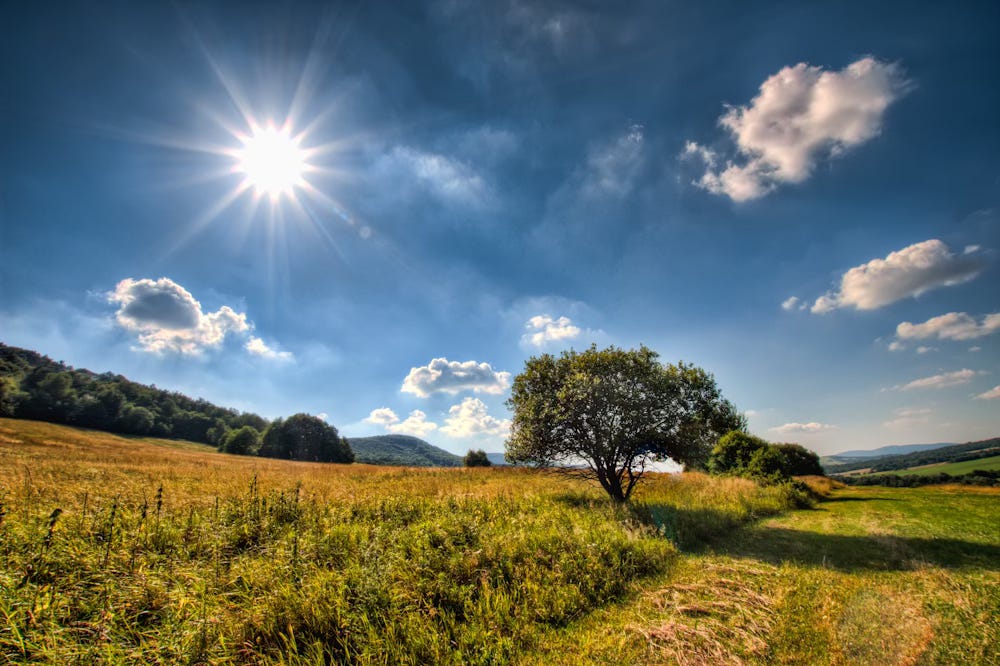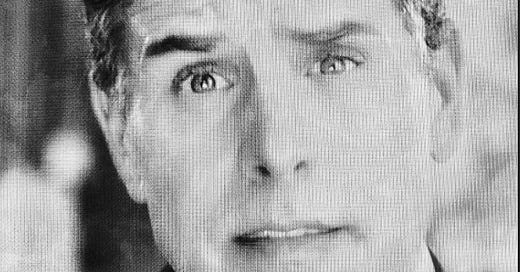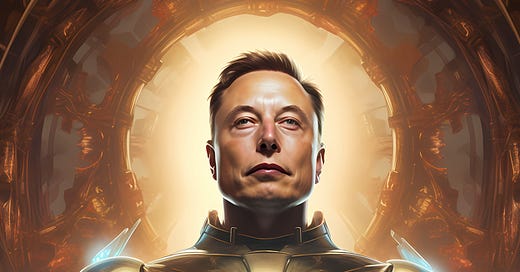
Election 2024 Will Be Intense—Take A Break This Summer If You Can
And other thoughts from a news junkie who temporarily logged off
Political discourse has been miserable this year, even more than usual. Partly that’s because of the news itself, with wars in Gaza and Ukraine. Part is the fracturing of news-related social media—Bluesky, Threads, Mastodon, etc.—and the ongoing efforts of X (nee Twitter) to promote lies, trolling, and bigotry. But part of it is the high stakes 2024 election. And that means the discourse will get worse.
The campaign will be intense, and no matter the electoral outcome, the aftermath probably won’t be smooth. So if you follow American politics and world events, if consuming the news is a regular part of your day, and especially if you participate in online discourse—and if you’re reading this, there’s a good chance you do—then try to find some time this summer to take a break.
I just did, and highly recommend it.
This is the fourth year I’ve cut myself off for about two weeks. I check email—deleting any political newsletter without clicking—but never open social media. Notifications are off. I keep up with sports and tv/movies, but avoid any news or commentary website. I unsubscribe from political podcasts, so I don’t automatically download new episodes. It takes a couple of days of willfully not checking, then settles into a period of ignorance-is-bliss.
I look at my phone less. I’m more present, my thoughts less divided. Life feels slower, and less demanding. I do things I’ve been meaning to, like home projects, and things I usually don’t have time for, like reading fiction.
By about two weeks, the ignorance starts feeling more like isolation, boredom, and hiding from the world. Then I write something and wade back in.
That’s how these breaks usually go, which is why I’ve made them an annual thing, but this time I felt something more than before: relief. Like a burden had been removed, or at least significantly eased. The news this year has been heavy.
It feels silly to talk about news consumption and commentary as burdensome, because it’s so minor compared to what people who experience the bad news go through. But those aren’t mutually exclusive. Observation and discussion is tiny compared to living through violence and repression, but all the negativity still weighs on people. I bet most of you know that feeling.
Information Age life is one of collapsed distance and topic smoothing, where faraway things are thrown in your face, day after day, intermingled with personal stuff like graduation photos. It makes people feel as if it’s all happening to them, which feeds, and is fed by, increased exposure to the most passionate reactions. Stepping away long enough for that feeling to fade is clarifying.
Anyone actively impacted by a bad government policy or societal hatred can’t simply choose to not experience it (though if you face bigotry on social media, that’s another reason to give yourself a break).
Anyone fighting to improve an ongoing situation, especially one with life-and-death stakes, might be unable to step away (though if you’re feeling burnt out, it’s worth asking if you’d better serve your cause if you weren’t).
Anyone whose job requires keeping up with the news can’t stop (though while it helps to have a job like mine, where work spikes in May and eases in June, a lot of things slow in July or August, and this would be a good use of vacation days if you have them).
The ability to take a break is a privilege, yes, one not all can exercise. But that’s my point. If you’re fortunate enough to have the option, now would be the time to use it. Millions of Americans enjoy this privilege every day without thinking, ignoring events and issues that don’t impact them personally, or paying enough attention to be aware—peruse the paper in the morning, or watch the 10 o’clock news—but without engaging and thinking about it for much of the day. You can too, at least for a bit.
The problem with privilege is when it creates unfair burdens for others, and cocoons the privileged from others’ avoidable suffering. The problem is not that there’s too little suffering in the world, with people who can avoid suffering failing to make themselves suffer in solidarity.
We can strive for equality by raising people up or tearing people down, but the quality of life under those equalities isn’t equal. As Kurt Vonnegut satirized in Harrison Bergeron, forcing everyone down to the lowest common denominator does make people more equal, but it doesn’t make anyone’s lives better (except, perhaps, for the bureaucrats who enjoy enforcing it).
There’s something noble about working to alleviate suffering, voluntarily taking on some to ease the burden on others. Suffering from afar as an observer doesn’t do that. If you hear about something bad happening in the world and feel bad about it, that, on its own, improves nothing. In particular, viewing a lot of graphic war imagery without professional reason and training traumatizes the observer without reducing the larger trauma of the victims.
People who survive armed conflict or escape repression think “I wish no one suffers as I did” far more than “I wish others would suffer” (except perhaps their tormentors, for some combination of justice and revenge).
Participating in discourse isn’t direct involvement, like working for a government agency, aid organization, or campaign, but I don’t think it’s nothing. As with all my previous news breaks, I come away from this one thinking that most social media activity doesn’t matter on a grand scale, but some invariably does, shaping narratives that influence elections, policy, and culture. Professional media, politicians, government officials, campaign staffers, activists, and passionately engaged citizens are on there, and they influence outside perceptions (hence the term “influencer”).
And then there’s the small stuff: expression, connection, dialogue, learning, collective processing, jokes. If I post something, and someone who reads it understands something a little better, or feels a little less alone, or shows me a perspective I hadn’t considered, that won’t change the world, but it’s not nothing either.
Each news break, I inevitably miss something I would’ve commented on, and find that little was lost. This year I left after Trump’s guilty verdict, writing an article and logging off, presumably skipping the aftermath of lies, rationalizations, anti-anti-, and bad faith.
I’m also pretty sure I missed a Hunter Biden gun possession trial. I bet discourse around that was dumb, with absurd attempts to blame Joe Biden, and whatabout away Trump’s much more serious crimes.
I presumably missed other things too, including more important ones, but Hunter is the story I caught a glimpse of in the supermarket (along with the aftermath of Trump’s felony conviction). Even when actively trying to avoid political news, it’s so embedded in society that some gets through.
That makes me think the dynamic with low-information voters is not that news never reaches them, but that they don’t care, so they gloss over these glimpses, sort of like how I’ve surely seen online headlines that some YouTuber is dating another, but don’t retain the information.
But this year, most Americans know something’s up. They might not know many details, or be able to precisely explain the stakes, but they have the sense that something big is happening, something different. And you’re into it or you’re not.
For anyone who doesn’t regularly consume news or online political discourse, that sense comes from people they know talking about it, campaign ads, mentions in things they follow—sports, reality TV, video games, etc.—and glimpses of headlines in supermarkets, train stations, and social media feeds.
That high-stakes ambiance will grow increasingly intense as the election approaches. It’ll be full of lies, threats, anger, fear, and attacks on American democratic principles many took for granted. It will reach into almost everything, including typically nonpolitical aspects of life.
I’ll be consuming news, sharing information, reading takes, making arguments, and collectively processing it all. As, I assume, will many of you.
By the fall, it will be inescapable. So do yourself a favor, and give your brain a break this summer if you can.
















